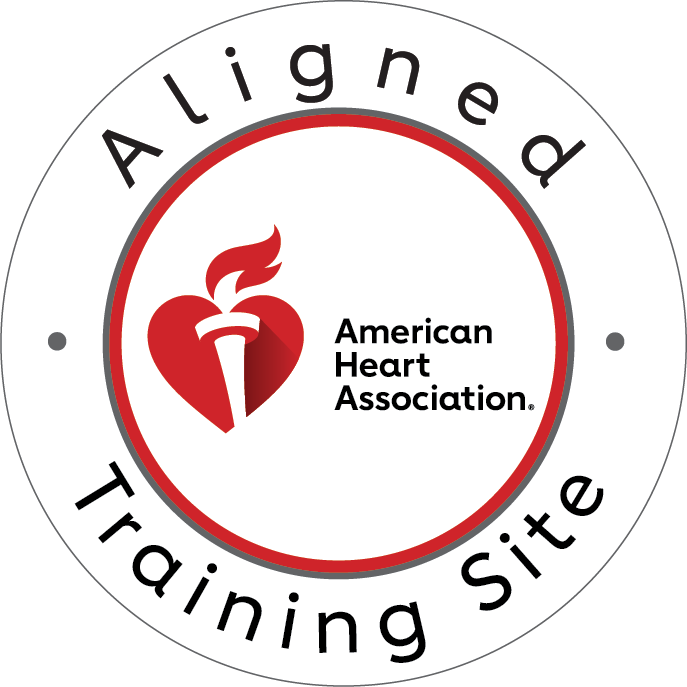In the bustling heart of Memphis, there exists a beacon of hope, where individuals are equipped with the skills to safeguard lives in moments of crisis. CPR Memphis stands tall as an American Heart Association (AHA) training site, offering a comprehensive array of courses ranging from Basic Life Support (BLS) for Healthcare Providers to Advanced Cardiovascular Life Support (ACLS) and Pediatric Advanced Life Support (PALS). Additionally, CPR and First Aid courses are available, ensuring that individuals across various disciplines are prepared to act swiftly and decisively in emergencies.
At the core of CPR Memphis’s mission lies a commitment to providing top-notch training that is not only effective but also stress-free and hands-on. Recognized as the premier destination for CPR training in Memphis, CPR Memphis prides itself on delivering courses that empower individuals to make a tangible difference in critical situations. Whether it’s administering CPR to a victim of cardiac arrest or providing vital first aid to someone in distress, the skills imparted through AHA certification are invaluable.
Understanding the Vital Role of AHA Certification:
In the fast-paced world of healthcare, where every second counts, having the right skills can mean the difference between life and death. This is where the American Heart Association (AHA) certification steps in as a beacon of competence and reliability. But what exactly does AHA certification entail, and why is it so crucial?
At its core, AHA certification represents a standard of excellence in lifesaving techniques, endorsed by one of the most reputable organizations in the field of cardiovascular health. It encompasses a range of courses tailored to various levels of expertise, from basic CPR to advanced cardiac care, ensuring that individuals across the spectrum of healthcare professions are equipped with the necessary skills to respond effectively to emergencies.
For those entering the healthcare field, obtaining AHA certification is often a prerequisite for employment. Hospitals, clinics, and other healthcare facilities place a premium on hiring candidates who possess AHA-certified credentials, recognizing the rigorous training and commitment to excellence that such certification signifies. Moreover, AHA certification serves as a testament to an individual’s dedication to continuous learning and professional development, qualities that are highly valued in any healthcare setting.
In addition to its relevance in clinical practice, AHA certification holds significant weight in the eyes of the public. Patients and their families place their trust in healthcare providers who hold AHA certification, knowing that they are in capable hands should a medical emergency arise. This trust is not easily earned but is cultivated through years of training, experience, and adherence to the highest standards of care – all of which are encapsulated in AHA certification.
Lifesaving Skills: The Core of AHA Certification:
Beyond the mere acquisition of a certificate, AHA certification is synonymous with the acquisition of lifesaving skills that can make a tangible difference in critical situations. Unlike traditional classroom learning, AHA courses are designed to be hands-on and stress-free, allowing participants to immerse themselves in practical scenarios that mirror real-life emergencies.
One of the cornerstone courses offered by CPR Memphis is Basic Life Support (BLS) for Healthcare Providers. This course equips participants with the fundamental skills needed to respond to cardiac emergencies, including cardiopulmonary resuscitation (CPR), the use of automated external defibrillators (AEDs), and the relief of choking in adults, children, and infants. Through a combination of interactive lectures, simulated scenarios, and hands-on practice, participants gain the confidence and competence to intervene effectively in life-threatening situations.
Similarly, Advanced Cardiovascular Life Support (ACLS) and Pediatric Advanced Life Support (PALS) courses build upon the foundation laid by BLS training, focusing on the management of more complex cardiac arrhythmias and pediatric emergencies, respectively. Participants learn to identify and treat a wide range of cardiovascular and respiratory emergencies, using evidence-based algorithms and simulation-based scenarios to reinforce their skills.
However, AHA certification extends beyond the realm of clinical practice, encompassing a broader set of skills that are invaluable in everyday life. CPR and First Aid courses offered by CPR Memphis cater to individuals from all walks of life, equipping them with the knowledge and skills needed to respond confidently to a variety of emergencies, from sudden cardiac arrest to severe bleeding and allergic reactions.
In essence, AHA certification empowers individuals to become proactive agents of change, capable of intervening decisively in emergencies and potentially saving lives in the process. As we continue our exploration of the importance of AHA renewal certification, we will delve deeper into the practical skills learned through AHA courses and their real-world applications. Stay tuned for the next installment of our article, where we will discuss the importance of renewal and the benefits of staying updated with the latest guidelines and techniques.
Importance of Renewal: Keeping Skills Sharp:
As the adage goes, “Practice makes perfect,” and nowhere is this more true than in the realm of lifesaving techniques. AHA renewal certification serves as a crucial mechanism for ensuring that healthcare providers and individuals maintain the highest level of proficiency in their skills. But why is renewal necessary, and what are the benefits of staying updated with the latest guidelines and techniques?
First and foremost, healthcare is an ever-evolving field, with new research, guidelines, and best practices emerging regularly. AHA renewal certification provides an opportunity for individuals to stay abreast of these developments, ensuring that their knowledge and skills remain current and aligned with the latest evidence-based practices. From updates to CPR techniques to advancements in cardiac care protocols, AHA renewal courses cover a wide range of topics designed to enhance participants’ ability to respond effectively to emergencies.
Moreover, renewal serves as a refresher for individuals who may not have had the opportunity to practice their skills regularly. Like any other skill, proficiency in lifesaving techniques can diminish over time without regular practice and reinforcement. AHA renewal courses provide participants with an opportunity to brush up on their skills, review key concepts, and participate in hands-on simulations that mimic real-life emergencies. This hands-on approach not only reinforces participants’ existing knowledge but also builds confidence in their ability to respond effectively to emergencies when they arise.
In addition to maintaining proficiency, AHA renewal certification also serves as a quality assurance measure, ensuring that healthcare providers and individuals continue to meet the highest standards of care. By requiring periodic renewal, AHA certification bodies can verify that individuals possess the requisite knowledge and skills to respond to emergencies competently and confidently. This not only instills trust and confidence in patients and their families but also serves to uphold the reputation of AHA certification as a mark of excellence in healthcare.
Quality Assurance: Ensuring Competency:
In the realm of healthcare, competency is not merely a desirable trait – it is an absolute necessity. Lives hang in the balance, and there is no room for error. American Heart Association (AHA) renewal certification serves as a critical quality assurance measure, ensuring that healthcare providers and individuals maintain the highest level of competency in their lifesaving skills.
One of the primary purposes of AHA renewal certification is to verify that individuals continue to possess the knowledge and skills necessary to respond effectively to emergencies. This is achieved through a combination of written assessments, practical skills evaluations, and hands-on simulations that closely mirror real-life scenarios. By requiring individuals to demonstrate their proficiency regularly, AHA certification bodies can ensure that only those who meet the highest standards of care maintain their certification.
Moreover, AHA renewal certification serves as a mechanism for identifying areas where additional training may be needed. Through feedback provided during the renewal process, individuals can gain insight into their strengths and weaknesses, allowing them to focus their efforts on areas where improvement is needed. This ongoing process of self-assessment and continuous learning is essential for maintaining the highest level of competency and ensuring that individuals are well-prepared to respond to a wide range of emergencies.
From the perspective of patients and their families, AHA renewal certification provides peace of mind, knowing that they are in capable hands should a medical emergency arise. Trust and confidence are essential components of the patient-provider relationship, and AHA certification serves to uphold these principles by ensuring that healthcare providers possess the requisite knowledge and skills to deliver high-quality care.
Beyond Compliance: Impact on Community Health:
While AHA renewal certification is essential for maintaining individual competency and ensuring quality care, its impact extends far beyond the confines of the healthcare setting. AHA-certified individuals play a vital role in promoting community health and safety, serving as advocates for proactive intervention and lifesaving measures.
One of the most significant contributions of AHA-certified individuals to community health is their ability to respond swiftly and effectively to emergencies outside of traditional healthcare settings. Whether it’s administering CPR to a bystander in cardiac arrest or providing vital first aid to a victim of trauma, AHA-certified individuals are often the first line of defense in emergencies. By equipping individuals with the knowledge and skills needed to intervene confidently, AHA certification empowers them to become proactive agents of change in their communities.
Moreover, AHA certification catalyzes community resilience, fostering a culture of preparedness and proactive intervention. Through outreach initiatives, education programs, and community partnerships, AHA-certified individuals can spread awareness about the importance of early intervention and empower others to become trained in lifesaving techniques. By building a network of trained responders within the community, AHA certification helps to create a safety net that can save lives in times of crisis.
Beyond its immediate impact on emergency response, AHA certification also plays a crucial role in promoting long-term health and wellness within the community. By emphasizing the importance of healthy lifestyle choices, risk factor modification, and preventive care, AHA-certified individuals can help reduce the incidence of cardiovascular disease and other chronic conditions. Through education and advocacy efforts, they can empower individuals to take control of their health and make informed decisions that can lead to better outcomes in the long run.
In conclusion, AHA renewal certification is not just about compliance – it’s about making a difference in the lives of others and promoting the health and well-being of our communities. By equipping individuals with the knowledge and skills needed to respond effectively to emergencies, AHA certification empowers them to become proactive agents of change and advocates for community health and safety. As we continue our journey toward a healthier, more resilient future, let us embrace the transformative power of AHA certification and work together to safeguard lives and promote well-being for all.
In the dynamic landscape of healthcare, where every second counts and lives hang in the balance, the importance of CPR renewal in Memphis through American Heart Association (AHA) certification cannot be overstated. It serves as a cornerstone of competency, ensuring that healthcare providers and individuals possess the knowledge and skills needed to respond effectively to emergencies and deliver high-quality care.
From the rigorous training and practical skills acquired through AHA courses to the ongoing process of renewal and quality assurance, CPR renewal in Memphis embodies a commitment to excellence and a dedication to continuous learning and improvement. But its impact extends far beyond the individual level, encompassing broader implications for community health and safety.
AHA-certified individuals in Memphis serve as beacons of hope and agents of change in their communities, promoting proactive intervention and lifesaving measures that can make a tangible difference in critical situations. Through outreach initiatives, education programs, and community partnerships, they empower others to become trained responders and advocates for health and wellness.
As we navigate the complexities of healthcare and emergency response in Memphis, let us embrace the transformative power of CPR renewal through AHA certification and work together to safeguard lives, promote well-being, and create healthier, more resilient communities for all. Together, we can make a difference and ensure that everyone in Memphis has the opportunity to live a long, healthy, and fulfilling life.
Conclusion:
In the dynamic landscape of healthcare, where every second counts and lives hang in the balance, the importance of CPR renewal in Memphis through American Heart Association (AHA) certification cannot be overstated. It serves as a cornerstone of competency, ensuring that healthcare providers and individuals possess the knowledge and skills needed to respond effectively to emergencies and deliver high-quality care.
From the rigorous training and practical skills acquired through AHA courses to the ongoing process of renewal and quality assurance, CPR renewal in Memphis embodies a commitment to excellence and a dedication to continuous learning and improvement. But its impact extends far beyond the individual level, encompassing broader implications for community health and safety.
AHA-certified individuals in Memphis serve as beacons of hope and agents of change in their communities, promoting proactive intervention and lifesaving measures that can make a tangible difference in critical situations. Through outreach initiatives, education programs, and community partnerships, they empower others to become trained responders and advocates for health and wellness.
As we navigate the complexities of healthcare and emergency response in Memphis, let us embrace the transformative power of CPR renewal through AHA certification and work together to safeguard lives, promote well-being, and create healthier, more resilient communities for all. Together, we can make a difference and ensure that everyone in Memphis has the opportunity to live a long, healthy, and fulfilling life.




